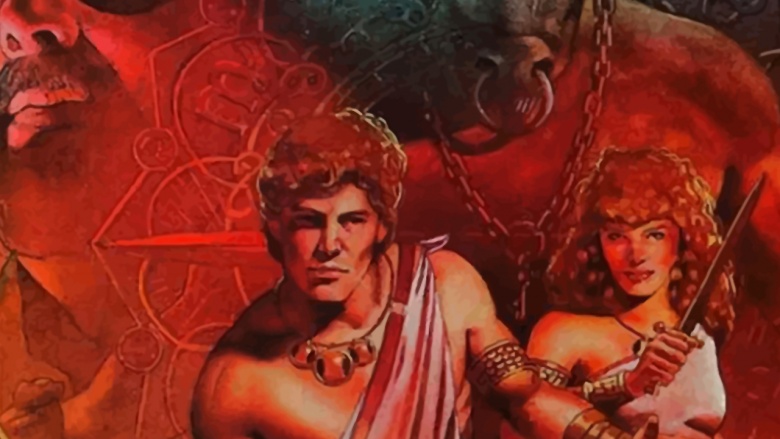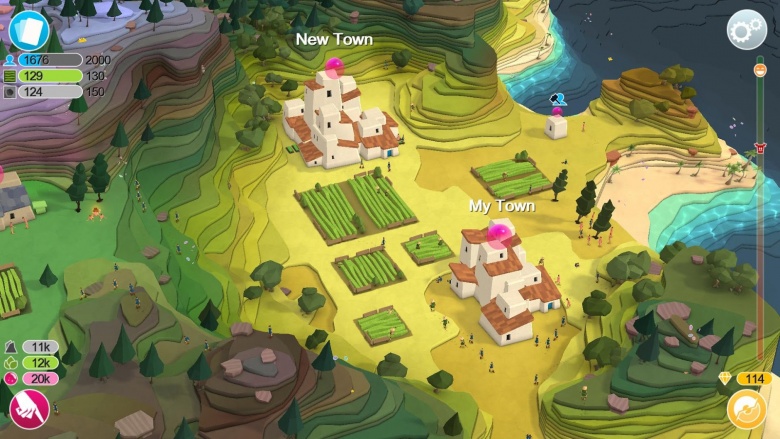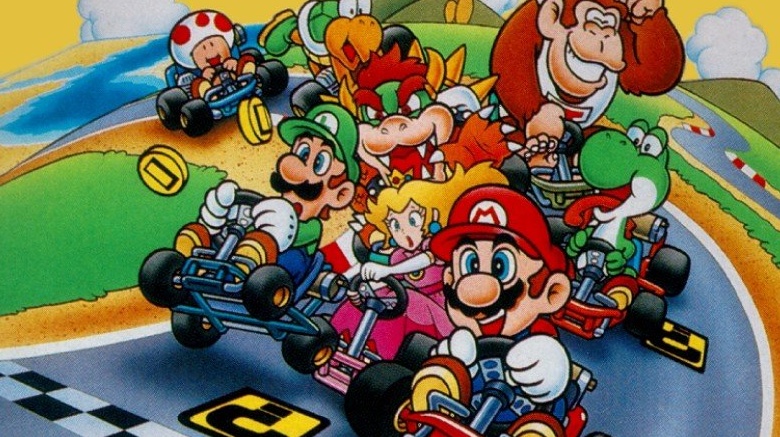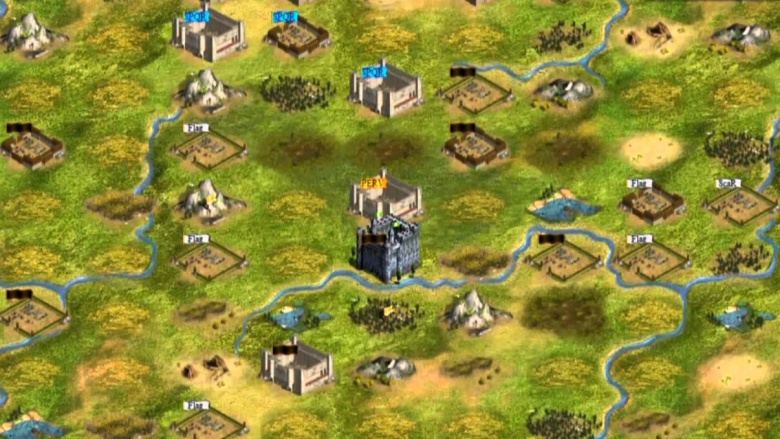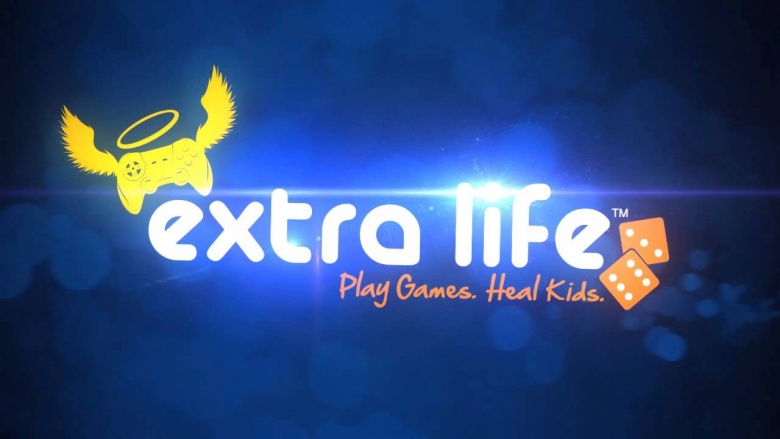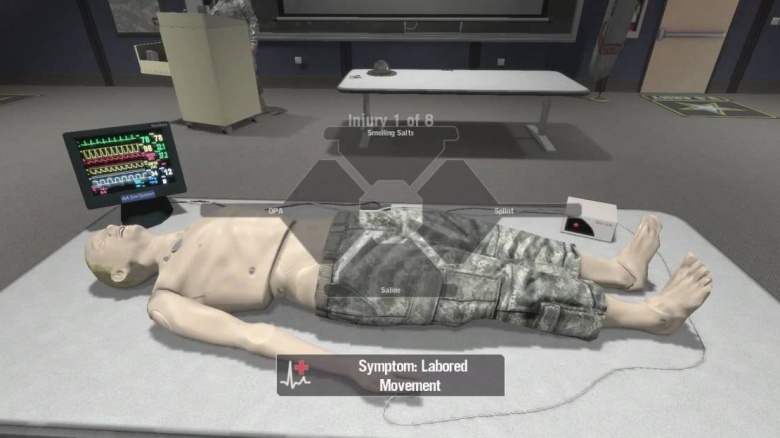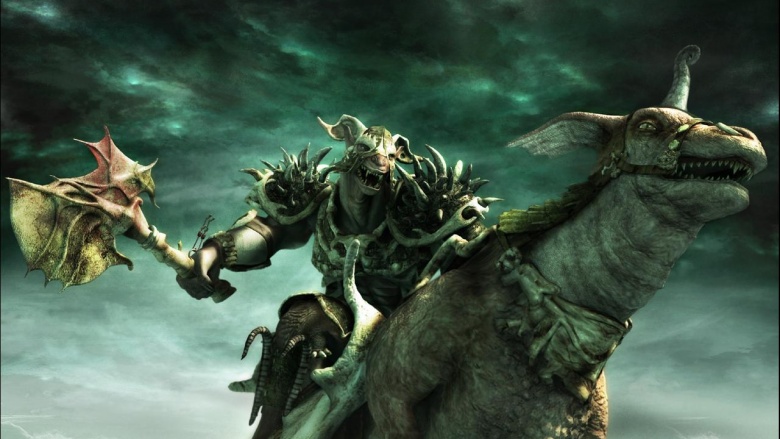Awesome Ways Video Games Tied Into Real Life
Video games don't need to exist only in a virtual space. Gaming has become such a part of our everyday lives that it often creeps out into our reality and affects us in very real ways. Of course, the most common real-life consequences of excessive gaming are blood clots, relationship troubles, and insomnia. But there are countless other actual human events directly related to gaming as well. Here are a handful of awesome real-life stories made possible by your favorite digital pastime.
The Swordquest medallion
The concept behind the Swordquest series was pure awesome. Players would compete through four different Atari games to solve complex puzzles combining in-game clues and comics packaged with each game, and whoever solved the puzzle first would get a real, amazing treasure. It was all pretty high concept for Atari, but they only carried it out across two games by the time the crash of 1983 brought everything to a halt. By then, a $25,000 medallion and a $25,000 chalice had been awarded. Steven Bell, the winner of the medallion, sold his prize to pay for college, so there was a happy ending after all.
The Curiosity disappointment
Curiosity was an enormous multiplayer mobile game, where all the players tapped on an enormous cube to make smaller cubes disappear, all in a collaborative effort to get to the center. While it sounds like an exercise in wasting time, the first person to reach the center would be awarded a mysterious prize, only revealed to the winner. Once someone broke into the center, it was finally revealed that the winner would become a paid decision-maker for a game called Godus, which sounds like a sweet deal—until developer 22Cans never lived up to its promise, leaving winner Bryan Henderson with neither a prize, nor a new job.
The Mario Kart rescue
In August of 2013, 10-year-old Gryffin Sanders saw his grandmother lose consciousness while out driving with him and his brother. Against all odds, Gryffin was able to take the wheel and steer the car to safety without any serious injuries to anyone inside—thanks to Mario Kart, according to the kid himself. Somehow, Gryffin was able to leverage his ability to guide Luigi around a go kart track into navigating an actual road with a real car, and around obstacles even more threatening than stray turtle shells. Things would have turned out differently had he been weaned on Grand Theft Auto.
The toaster fire
For those suffering from muscular dystrophy, video games are often an escape from everyday difficulties, but in the case of Robert Chambers, a game literally saved his life. Stuck immobile in Spokane, Washington, Chambers was unable to escape when a toaster at his residence caught fire. Instead, he used Evony's in-game chat feature to call for help, and players from across the US called Spokane police and fire departments, who arrived in time to save Chambers' life from the growing blaze. Prior to this incident, Evony was only known for deceptive advertising and lawsuits.
Marriage proposals aplenty
There are literally dozens of geeky dudes who have proposed to their girlfriends using video games, whether they've used Chrono Trigger mods, customized Minecraft, or Little Big Planet levels, or even completely original games designed for the express purpose of getting their girl of choice to submit to the ring. You'll find just about all of these on YouTube, but none are more elaborate than Gary Hudston's proposal, which incorporated a custom Portal 2 level, including the original voice of GlaDOS. She said yes, but gentlemen, make sure your girlfriend actually likes games before you propose to her with one. Half of these ladies just seem perplexed.
Extra Life
Back in the days of the NES, watching someone play a video game was usually a punishment for having only one controller. These days, however, games are an international spectator sport. Extra Life is a charity organization that helps gamers broadcast these gaming marathons in order to earn donations for local children's hospitals. Born from the unfortunate death of Victoria Enmon, a gamer herself, Extra Life raises millions of dollars every year for charity, saving lives. And you don't even have to leave your couch.
The virtual field medic
America's Army was developed by the US government as an unabashed recruitment tool for the actual Army, using realistic situations to show the experience of war. If you don't run away traumatized and terrified, you might just be cut out for to be all that you can be. Part of this realism is a virtual medical training course, which gamer Paxton Galvanek was very familiar with. So, when he saw a flipped SUV with a dismembered victim in South Carolina, Galvanek didn't hesitate to hop out of his own car and use what he learned in Army to slow blood flow and ultimately preserve the victim's life until actual paramedics arrived. A little bit of information went a very long way.
The virtual sword stabbing
Okay, this one is not at all awesome. In fact, it's pretty horrible. It started off awesome — two friends in China won a rare in-game sword in Legend of Mir 3 in 2005, worth around $1,100 today. Unfortunately, the prize quickly proved too much for them to share. When Zhu Caoyuan sold the sword online without telling Qiu Chengwei, authorities didn't know how to deal with the theft, since it was all virtual goods. Qui became impatient and murdered Zhu, stabbing him repeatedly, which did nothing to get the mystical imaginary sword back, and only sent Qui to prison. Mir 3 shut down permanently in 2012, so it was hardly worth it. Video games, man.

